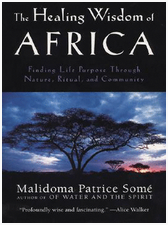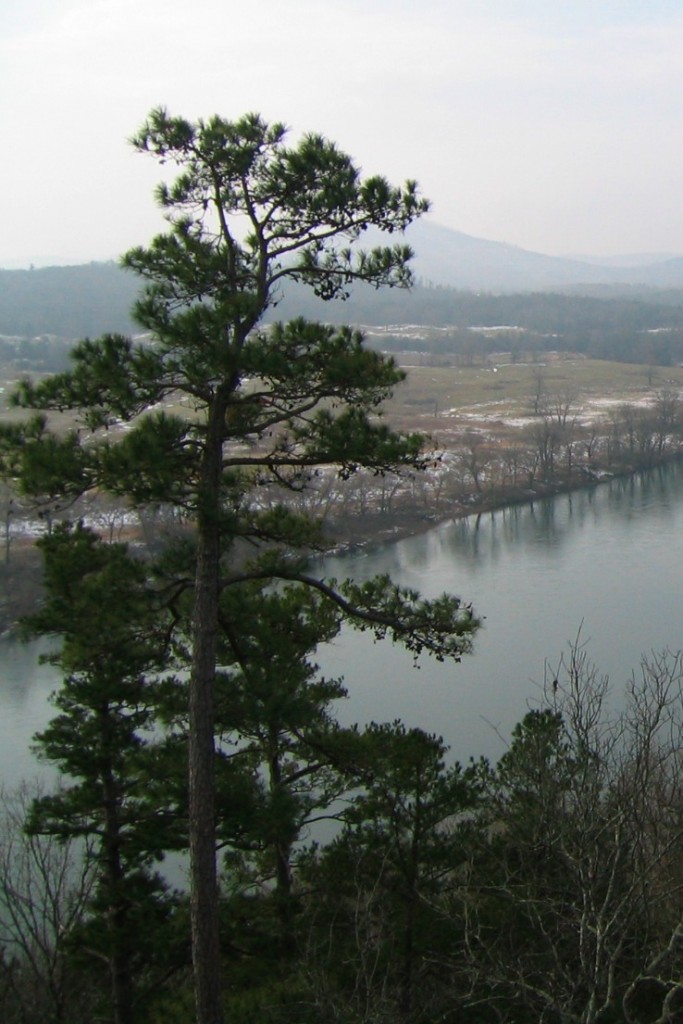Note from Priscilla: You saw it once, but that blog post disappeared without making the Top Ten. Favorite Friday is a chance to revisit earlier posts and enjoy them once again. This post first appeared on March 17, 2010.
This week is spring break at the college where I teach, and I’m enjoying a respite from the endless flow of words. (Ironic that I sit down to write a blog post.) For a person who deals in words, I sometimes get weary of them. Words in emails, words in phone calls, words in books and media. How completely we humans rely on words! And how they leave us wanting in the deepest, most intense moments of our lives—when we are in love or in grief, when words say too much or too little but rarely approach the truth of the experience.
 Which is why I’m remembering some wisdom from the Dagara people of Burkina Faso in west Africa, as related by Malidoma Somé in The Healing Wisdom of Africa. (Full disclosure: I was paid to edit and develop this book a dozen years ago.)
Which is why I’m remembering some wisdom from the Dagara people of Burkina Faso in west Africa, as related by Malidoma Somé in The Healing Wisdom of Africa. (Full disclosure: I was paid to edit and develop this book a dozen years ago.)
Language, say the Dagara, is but a distant echo of the meaning to be found at the center of all-that-is. Writes Somé,
Words are but a remote reflection of meaning, like the shadows on the wall of Plato’s cave. . . . “To utter” [for the Dagara] means to be in exile.
The very act of putting a sentence together shows just how far we dwell from the source.
Language implies nostalgia for our true home, which is nature.
The idea captivated me—that nature is our true home. That we’re all longing to return home. And that words won’t get us there.
Meditators know the paradox. Becoming fully present in the moment means being able to interrupt the inner chatter, turn down the volume of the mental broadcast. Anyone who has sat quietly for even a few minutes knows how hard this is to do.
But the Dagara take the idea further. The amount of language a being uses, they say, shows how intelligent or foolish it is. In Dagara cosmology the beings closest to the center of meaning are plants and trees, for they do not depend on language to communicate. They are the wisest and most intelligent beings in nature. Farther away from the source are animals, who need some language to survive. And farthest away of all, the least intelligent species, are human beings, who rely almost entirely on words.
It’s the Western hierarchy of nature upside down. Instead of residing at the top of nature, close to the gods, we’re at the very bottom, far from home. In exile.
We could learn a thing or two from our wiser sisters and brothers—the trees, the animals, our own bodies. Which is why I recommend sitting with a tree, and why most of my meditations involve nature—from the body-focused awareness of shavasana to hiking among rocks and pine trees. Which is also why the Dagara recommend nature-based rituals—to help us remember our place in the scheme of things. To remind us to listen. To help us remember the center.
Because the more language, the more forgetting.
 It’s tempting to think this is a nice philosophy—for village folk, not for modern urban people. But I got a good dose of something similar recently through a Western scientist’s book, My Stroke of Insight. Jill Bolte Taylor is a neuroanatomist who in 1996 had a stroke that wiped out the verbal language centers in the left hemisphere of her brain. Her inspiring TED talk about the stroke and its aftermath has been viewed by millions.
It’s tempting to think this is a nice philosophy—for village folk, not for modern urban people. But I got a good dose of something similar recently through a Western scientist’s book, My Stroke of Insight. Jill Bolte Taylor is a neuroanatomist who in 1996 had a stroke that wiped out the verbal language centers in the left hemisphere of her brain. Her inspiring TED talk about the stroke and its aftermath has been viewed by millions.
Taylor says that within minutes of her stroke, she was plunged into wordlessness.
You might think it was a bleak existence, but the truth is rather different. Certainly she wanted to speak again, and she worked hard for years to regain her language skills. But she didn’t want language at the expense of what she experienced during those first minutes and hours after the stroke when she was without it.
When I lost my left hemisphere and its language centers, I also lost the [linear thinking] clock. . . . Instead of having my moments prematurely stunted, they became open-ended, and I felt no rush to do anything. Like walking along the beach, or just hanging out in the beauty of nature, I shifted from the doing-consciousness of my left brain to the being-consciousness of my right brain. I morphed from feeling small and isolated to feeling enormous and expansive.
Without her linear-thinking left brain, she also lost the ability to see herself as a bounded body separate from her environment.
My left hemisphere had been trained to perceive myself as a solid, separate from others. Now, released from that restrictive circuitry, my right hemisphere relished its attachment to the eternal flow. I was no longer isolated and alone. My soul was as big as the universe and frolicked with glee in a boundless sea. . . . I loved the deep inner peace that flooded the core of my very being.
Her stroke provided a quick trip to nirvana, and she hung out in a bliss that meditators work for years just to glimpse.
 The more language, the more forgetting—of that boundless sea. Of the peace in the present moment. Of the perfection each of us is, just by being.
The more language, the more forgetting—of that boundless sea. Of the peace in the present moment. Of the perfection each of us is, just by being.
We love our dogs and cats for their ability to bring us back to the present, to remind us to laugh and roll in the grass or stretch out in a sunny spot on the floor. Animals communicate using so much less language than we do—which brain research (as well as the Dagara) might suggest is the source of their joy.
Is it possible that the trees and plants also dwell in that boundless sea that Jill Bolte Taylor found when her left brain went offline? Perhaps, not needing language to communicate, they too are big as the universe.
Walt Whitman wrote in Song of Myself,
The spotted hawk swoops by and accuses me, he complains of my gab.
For good reason. These humans talk too much. It can get in the way.